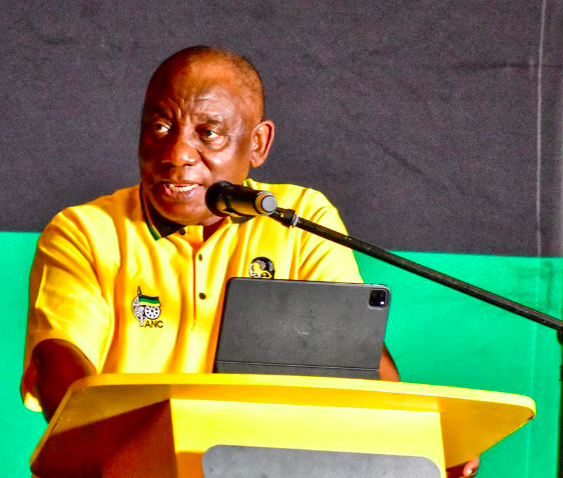By Betha Madhomu
Cape Town – This week, the ANC marks its 113th anniversary not with the triumphant fanfare of years past but under the cloud of its weakest electoral performance since 1994.
The once-dominant liberation movement now finds itself at a crossroads, grappling with the harsh reality of diminished support and a fractured electorate.
President Cyril Ramaphosa is set to deliver the pivotal January 8 Statement at Mandela Park Stadium in Khayelitsha, Cape Town. His address is expected to go beyond ceremonial platitudes, delving into the ANC’s plans for 2025 and addressing the party’s electoral setbacks.
But is the ANC truly prepared to confront its failings and chart a path toward redemption?
At the heart of the ANC’s current woes are issues it can no longer afford to ignore: internal divisions, chronic governance failures, and an endemic culture of corruption. These factors have not only alienated voters but also eroded the party’s credibility.
If Ramaphosa’s speech is to carry any weight, it must offer more than recycled promises – it must present a bold, actionable roadmap for systemic reform.
The stakes are higher than ever. This anniversary marks the first January 8 celebration since the ANC lost its majority in the national elections, forcing it into an uneasy Government of National Unity (GNU) with the Democratic Alliance (DA). This coalition, unprecedented in South Africa’s history, represents a seismic shift in the nation’s political landscape. While some view the GNU as a beacon of stability, others see it as a Faustian bargain, one that risks diluting the ANC’s policy identity.
COUNTDOWN!!!
5 Days To Go! Until the ANC celebrate the #ANC113 Anniversary at Mandela Park Stadium, Khayelitsha in Cape Town
🗓️Saturday, 11th January 2025
Gates open at 07:00!#ANC113#ANCeKapa#ANCJan82025#ThePeoplesMovement pic.twitter.com/q2zdu2CQ10
— ANC SECRETARY GENERAL | Fikile Mbalula (@MbalulaFikile) January 6, 2025
Political analysts have framed this moment as an existential challenge for the ANC. To remain relevant, the party must redefine its mission in a way that resonates with a sceptical public. This means not only addressing the immediate crises of governance and inequality but also articulating a vision for the future that transcends coalition politics and inspires renewed faith in its leadership.
Far from the grand rallies of yesteryear, the scaled-down gathering signals both financial strain and a recognition that the ANC must rebuild trust from the ground up. The choice of Khayelitsha—a community emblematic of the socio-economic struggles that persist across South Africa—further highlights the party’s attempt to reconnect with its grassroots base.
Yet symbolism alone will not suffice. The ANC cannot rely on nostalgia or historical loyalty to regain its footing. South Africans are demanding tangible results: improved service delivery, decisive action against corruption, and a leadership that is both accountable and visionary.
As the ANC enters its 113th year, the January 8 Statement must serve as more than a ceremonial marker – it must be a clarion call for renewal. Ramaphosa has an opportunity to demonstrate that the party understands the magnitude of its challenges and is prepared to evolve in the face of them. Failing to seize this moment could consign the ANC to a legacy of decline, while success could mark the beginning of a new chapter for the party and the country it once defined.
The road ahead will not be easy, but one thing is clear: South Africa is watching, and the ANC can no longer afford to falter.
Follow African Insider on Facebook, Twitter and Instagram
Picture: X/@MYANC
For more African news, visit Africaninsider.com
Compiled by Betha Madhomu


